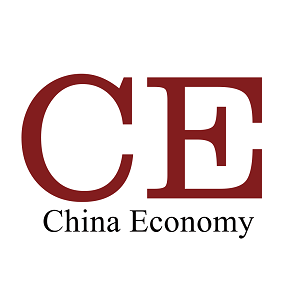
A BYD employee works on the assembly line of the company's new energy vehicle factory in Xi'an, Shaanxi province, on Feb 25. [Photo/XINHUA]
BYD's electric vehicles, face mask sales create winning combination in very testing times
In the normal course, BYD Co Ltd functions as a new energy vehicle manufacturer. In extraordinary circumstances like, say, a period of pandemic, it can transform itself into a global community-oriented force. BYD demonstrated its flexibility and commitment to community during the ongoing fight against COVID-19.
It churned out medical masks to not only satisfy domestic demand but serve the rest of the world. As the disease evolved into a pandemic and global demand for masks soared, the Shenzhen, Guangdong province-based automobile maker morphed into a producer of medical protection gear.
By May 1, the daily production capacity of BYD's self-developed medical masks had reached 30 million pieces. As the situation improved in China, the company shifted its focus to other countries in need.
In early April, BYD received an order from Japanese tech giant Soft-Bank. According to the company, the order is being delivered this month.
"Our employees are now working round the clock to increase the mask production capacity, hoping to offer more assistance in the world's fight against the epidemic," said Li Yunfei, spokesman of BYD.
As for its main line of business, BYD commands a market share of more than 20 percent in Europe's pure electric bus segment, ranking first among its peers.
So far, BYD had received accumulated orders of more than 1,200 pure e-buses in over 100 cities across more than 20 European countries. The cities include Amsterdam, London, Brussels, Oslo, and Turin, just to name a few.
Back in January 1999, BYD's Europe branch was established in Rotterdam in the Netherlands. The branch focused on providing local customers with the company's new energy products including new energy vehicles, rechargeable batteries, solar panels, energy storage systems and rail transit system. It also offered after-sales services.
Over 20 years later, BYD's pure e-buses accounted for the highest market share in the European market. Its pure e-taxis were also seen everywhere.
BYD entered the United States market in 1999. In 2011, it set up its North American head office in Los Angeles. Two years later, its pure e-bus factory was established in Lancaster, California.
Currently, the company's business in the American market covers the US, Canada, Brazil, Chile, Mexico, Columbia, Ecuador and Uruguay. Its product portfolio includes cars, forklifts, trucks, buses, and taxis.
BYD's green footprint spans the Asia-Pacific region, Africa and the Middle East. Speaking of the secret behind BYD's success overseas, Li said the company has always driven technology innovation, which in turn drives the company's development.
"We have been constantly increasing the investment in research and development. Facing surging opportunities in the new energy industry, the company actively carried out various businesses. With vertical integration of the entire industry chain and other advantages, we have opened up a sustainable innovation development path for Chinese private enterprises," he said.
In mid-March, even as the pandemic spread across the world, the company announced the launch of FinDreams, a new sub-brand that specializes in core component production for eco-friendly electric vehicles. The sub-brand enjoys more autonomy and is expected to help the company expand the reach of its electric vehicles to consumers around the world.
Shi Jinman, an automobile analyst at Guotai Jun'an Securities, said: "The establishment of the independent brand benefits the company as the move makes it easier to reach more clients overseas. In addition, the overseas subsidiaries can work more efficiently on making decisions such as building local plants, and take advantage of BYD's digital channels to boost global expansion."



